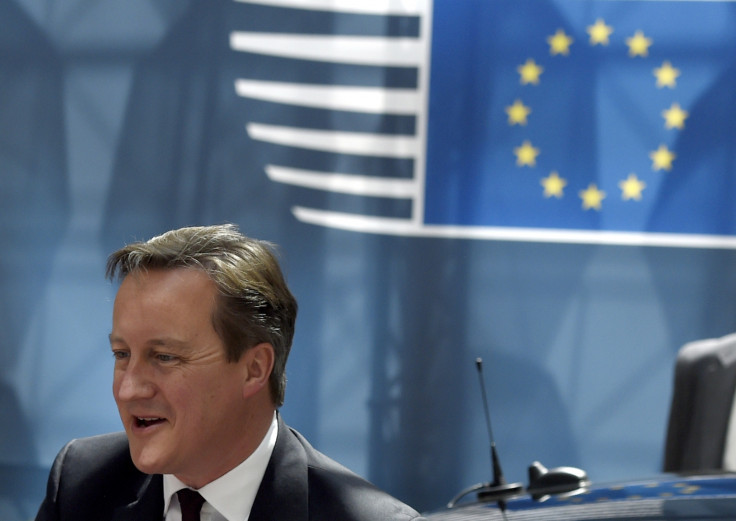Greek debt crisis: David Cameron insists UK is prepared for 'every eventuality'

David Cameron has insisted that the UK will be prepared for "every eventuality" as the Greek debt crisis draws to its turbulent conclusion.
The prime minister said he would put the final touches to the government's economic response, which would include helping British citizens in Greece, on 29 June in the event of the Mediterranean nation dropping out of the eurozone.
Cameron also told BBC Radio 4's Today Programme that Britain's interests would be best served by "an agreement between Greece and the eurozone... that delivers the security and stability we want to see".
The comments come after the Greek government announced that the country's banks will be closed all week ahead of a referendum on 5 July.
The historic vote, backed by Prime Minister Alexi Tsipras, will allow Greeks to decide if the Syriza government will accept the terms of the country's creditors.
Tsipras and his ministers made the move after the European Central Bank (ECB) refused to extend emergency funding to Greece ahead of the 30 June deadline for its €1.6bn (£1.1bn) International Monetary Fund (IMF) repayment.
The country is now expected to default on its debt and could leave the eurozone, a possibility that has seen stock markets across Europe drop in value on the morning of 29 June.
Cameron has reportedly argued that it "might be better" for Greece to exit from the euro in a bid to repair and rebuild its economy.
A leaked memo, obtained by The Guardian, apparently shows that the PM made the comments during an informal conversation at a meeting of EU leaders.
"On Greece, the PM wondered if it was wise for Angela Merkel to allow the discussion with Greece to take place at PM level and mused that it might be better for Greece to leave the eurozone in order to sort its economy out – though also accepted that there were major risks in that too," the document reads.
The crisis comes as Cameron continues to renegotiate the UK's relationship with the EU ahead of the promised referendum by the end of 2017.
The prime minister wants Britain to stay in the 28-member bloc, but also to secure key concessions from Brussels. The Tory leader admitted on 26 June that the chance of securing a treaty change ahead of the historic vote would be unlikely.
The prime minister instead indicated that he would push for a promise of EU law change after the referendum.
© Copyright IBTimes 2025. All rights reserved.






















